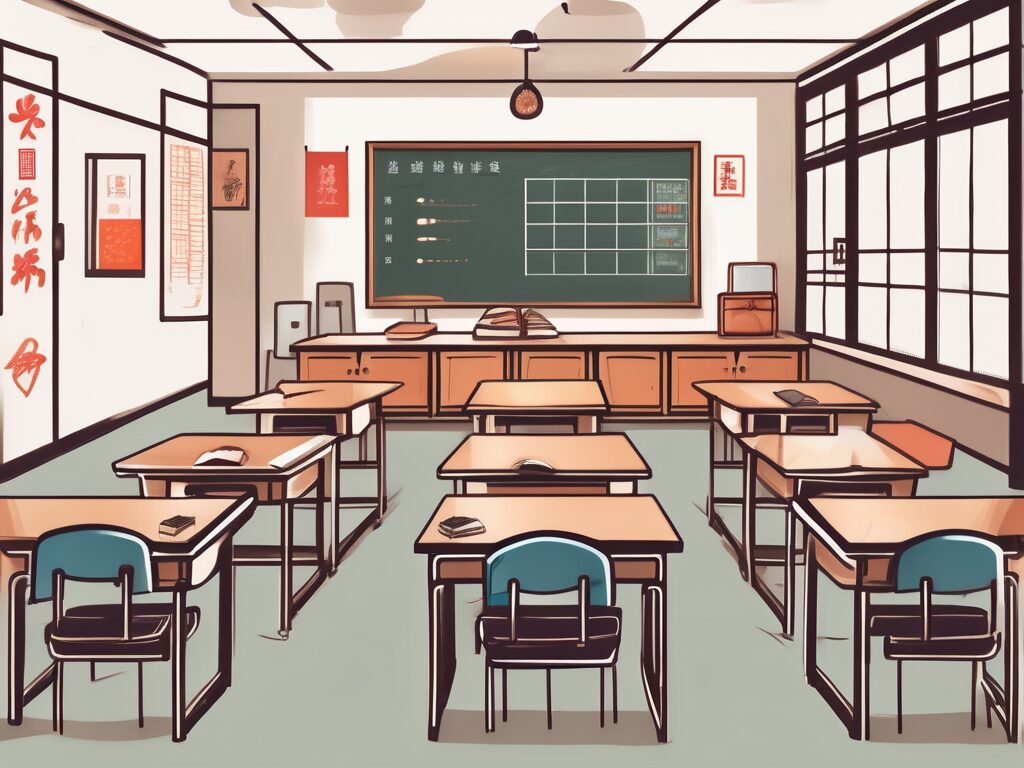Classroom management is an integral part of teaching, and it can be particularly challenging in a foreign country like China. With a Master’s degree in Education, you’re equipped with the theoretical knowledge and practical skills to navigate this challenge. However, the application of these skills in a Chinese classroom setting can be quite different. Here are six tips to help you manage your classroom effectively in China.
Understanding the Cultural Context
First and foremost, it’s crucial to understand the cultural context in which you’re teaching. Chinese classrooms are traditionally teacher-centred, with a focus on rote learning and memorisation. This is quite different from the more interactive, student-centred approach often used in Western classrooms.
However, this doesn’t mean that you should completely abandon your teaching style. Instead, try to find a balance between the two approaches. Introduce interactive activities gradually, and be patient with your students as they adapt to this new style of learning.
Respecting Hierarchies
In Chinese culture, respect for authority and hierarchy is deeply ingrained. As a teacher, you’re expected to command respect and maintain discipline in the classroom. However, this should be done in a respectful and understanding manner. Remember, you’re not just teaching your students English, you’re also teaching them about cultural diversity and mutual respect.
It’s also important to respect the hierarchy among your colleagues. Be mindful of seniority and show respect to your superiors. This will not only help you build good relationships with your colleagues, but also set a good example for your students.
Effective Communication
Communication is key in any classroom, but it can be particularly challenging in a foreign language classroom. It’s important to be clear and concise in your instructions, and to check for understanding regularly. Use visual aids, gestures, and realia to support your verbal instructions.
Remember, communication is a two-way street. Encourage your students to express their thoughts and ask questions. This will not only improve their language skills, but also make your classes more engaging and interactive.
Language Barriers
Language barriers can be a major challenge in a Chinese classroom. While your students are learning English, you might also need to learn some basic Chinese to communicate effectively. This can be a daunting task, but it’s definitely worth the effort. Not only will it make your teaching more effective, but it will also show your students that you’re willing to step out of your comfort zone and learn something new.
There are plenty of resources available to help you learn Chinese. You can use language learning apps, take online courses, or even hire a private tutor. Remember, the goal is not to become fluent in Chinese, but to learn enough to communicate effectively in the classroom.
Classroom Rules and Procedures
Establishing clear classroom rules and procedures is crucial for effective classroom management. These rules should be clear, reasonable, and consistently enforced. Make sure to explain the rules to your students at the beginning of the term, and remind them regularly.
It’s also important to establish clear procedures for common classroom activities. This will help your classes run smoothly and efficiently. For example, you might have a procedure for handing out and collecting assignments, for group work, or for asking questions.
Discipline
Discipline is a sensitive issue in any classroom, and it can be particularly challenging in a foreign country. It’s important to handle disciplinary issues in a respectful and understanding manner. Remember, your goal is not to punish, but to teach and guide.
When dealing with disciplinary issues, try to understand the underlying cause of the behaviour. Is the student bored? Are they struggling with the material? Are they having personal issues? Once you understand the cause, you can address the issue more effectively.
Building Relationships
Building positive relationships with your students is crucial for effective classroom management. Show genuine interest in your students, and take the time to get to know them. This will not only make your students feel valued and respected, but also make your classes more enjoyable and engaging.
Building relationships with your colleagues is also important. They can provide valuable advice and support, and help you navigate the challenges of teaching in a foreign country. Don’t hesitate to ask for help when you need it, and be willing to offer help in return.
Continuous Professional Development
Teaching is a profession that requires continuous learning and development. Keep up to date with the latest teaching strategies and techniques, and be willing to try new things in your classroom. Attend professional development workshops and seminars, read professional journals, and participate in online teaching communities.
Remember, the goal is not to be a perfect teacher, but to be a better teacher. Don’t be afraid to make mistakes, and learn from them. Your students will appreciate your efforts, and you’ll find your teaching experience in China to be rewarding and fulfilling.
Classroom management in China can be challenging, but with a Master’s in Education and these six tips, you’ll be well-equipped to navigate these challenges. Remember, teaching is not just about imparting knowledge, but also about inspiring, guiding, and nurturing your students. With patience, understanding, and a positive attitude, you can make a real difference in your students’ lives.
Advance Your Teaching Career with iQTS
Ready to elevate your classroom management skills and expand your professional horizons in China and beyond? The IQTS at UWE offers the International Qualified Teacher Status (iQTS) Programme, specifically designed to enhance your professional development and career progression. With our programme, you’ll not only meet international qualification standards but also increase your chances of promotion, salary, and professional connections. Embrace the opportunity to become more adaptable to global education systems and reduce feelings of isolation by joining a vibrant community of educators. Make Your Next Step towards a fulfilling international teaching career with the flexibility to balance work and study. Join the iQTS programme today and transform your teaching journey.

